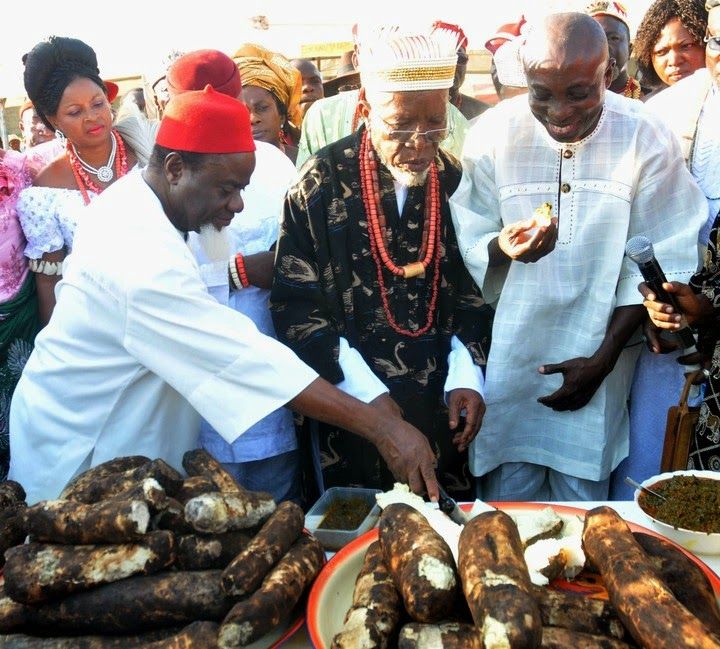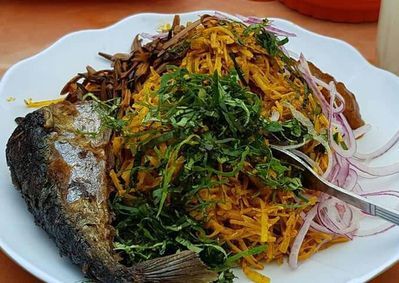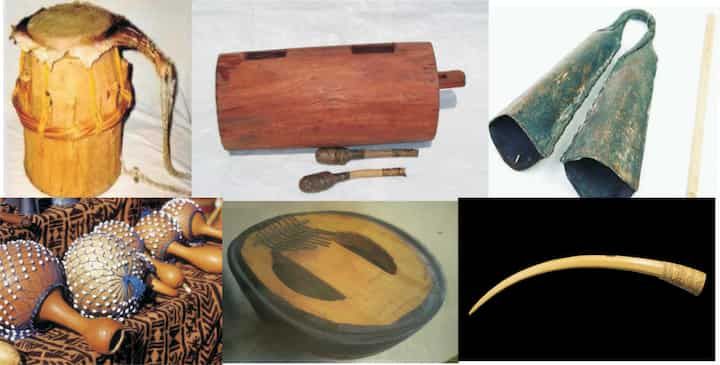Do you know that Igbo are the second biggest gathering living in southern Nigeria. They are socially and socially assorted, with numerous subgroups. In spite of the fact that they live in dispersed gatherings of towns, they all communicate in one language.
The Igbo have no normal conventional story of their beginnings. Antiquarians have proposed two significant speculations of Igbo beginnings. One case is the presence of a center region, different cases that the Igbo are plummeting from rushes of migrants from the north and the west who showed up in the fourteenth or fifteenth 100 years.
The association of Europeans with the Igbo started with the appearance of the Portuguese during the fifteenth hundred years. At first the Europeans restricted themselves to slave exchange on the Niger Coast. Right now, the principal thing of trade given by the Igbo was slaves, a large number of whom were shipped off the New World. After the cancellation of the slave exchange in the early eighties, Until 1960, Nigeria remained an English province, and the Igbo were English subjects. On October 1, 1960, Nigeria turned into a free country organized as an organization of states.

Source
1 • Area
Igboland is situated in southeastern Nigeria, with a complete large land area, The Igbo region has four unmistakable regions. The low-lying deltas and riverbank regions are vigorously immersed during the stormy season.
2 • Language
The Igbo language has a place with the Niger-Congo language family. It is essential for the Kwa subfamily. A muddled arrangement of high and low tones shows contrasts in importance and syntactic connections.
The following are a couple of Igbo articulations:
English to Igbo languages
▪︎ Hi, how are you?: Keku ka imelo?
▪︎ What is your name? Kedu ahagi?
▪︎ Much thanks to you Ndewo
3 • Fables
The Igbo have an arrangement of people's convictions that makes sense of how all that on the planet appeared. It makes sense of which works the brilliant and natural bodies have and offers direction on the most proficient method to act toward divine beings, spirits, and one's precursors.
The Igbo accept the world is inhabited by imperceptible and noticeable powers: by the living, the dead, and those yet to be conceived. Rebirth is viewed as a scaffold between the living and the dead.
4 • Religion
The significant convictions of the Igbo religion are shared by all Igbo-talking individuals. In any case, a large number of its practices are privately coordinated, with the best unit of strict love being the more distant family. Occasional customs and services might actuate the genealogy (bigger family relationship unit) or the town, which is the broadest political local area.
The Igbo put stock in a preeminent god who oversees his animals in a good way. He only occasionally meddles in the issues of people. No penances are made straightforwardly to him. Notwithstanding, he is viewed as a definitive recipient of penances made to the minor divine beings. To recognize him from the minor divine beings he is called Chukwu — the extraordinary or the high god. As the maker of everything, he is called Chukwu Abiama.
There are likewise minor divine beings, who are by and large dependent upon human interests and shortcomings. They might be caring, accommodating, and enterprising; at different times they are deceptive, unmerciful, and desirous. These minor divine beings incorporate Ala, the earth goddess. She is related with ripeness, both of people and of the land. Anyanwu is the sun god who makes yields and trees develop. Igwe is the sky god, the wellspring of downpour.
Notwithstanding their divine beings, the Igbo have faith in various spirits whose kindness relies upon treating them well. Backwoods and streams at the edge of developed land are supposed to be involved by these spirits. Mbataku and Agwo are spirits of riches. Others incorporate Aha njoku (the sweet potato soul) and Ikoro (the drum soul).
The Igbo mentality toward their gods and spirits isn't one of dread, however one of fellowship.

Source
5 • Significant Occasions
The Igbo commend the significant public occasions of Nigeria, including New Year's Day (January 1), Easter (Walk or April), Nigerian Autonomy Day (October 1), and Christmas (December 24 to 26).
What's more, every town has its own neighborhood celebrations. Those in the spring or summer are held to invite the new rural cycle. In the fall, gatherings are held to check the finish of the cycle.
6 • Soul changing experiences
Circumcision happens around eight days after the introduction of a kid. As of now the umbilical string is covered at the foot of a tree chosen by the kid's mom.
The name-giving service is a conventional event celebrated by devouring and drinking. A wide assortment of names might be picked. The name might be founded on anything from the kid's skin pigmentations to the assessment of the soothsayer, or diviner. The name Nwanyimeole — What can really be done? — implies that a dad wants a male kid. Onwubiko — May passing pardon — communicates the way that guardians have lost a large number of their kids and implore that this kid might get by.
The method involved with wedding a youthful Igbo lady is a long, elaborate one. It is seldom achieved in under a year and frequently requires quite a while. The cycle falls into four phases: asking the young lady's assent, haggling through a mediator, testing the lady of the hour's personality, and paying the lady riches, a sort of settlement.
Passing in advanced age is acknowledged as a gift. After death, the body is dressed in the individual's best pieces of clothing. The carcass is put on a stool in a sitting stance. Lifelong companions and family members visit and offer their final appreciation. Young fellows envelop the cadaver by grass mats, complete it to the graveyard, and cover it. At the point when the top of a family passes on, he is covered underneath the floor of his home. Internment for the most part follows inside 24 hours of death.
8 • Day To Day Environments
Town life has changed significantly since the revelation of oil in Nigeria. Houses, which used to have mud walls and covered rooftops, are currently built of concrete blocks with creased iron rooftops. Power has been presented; TVs and radios are currently typical. Towns have running water, in spite of the fact that it isn't associated with each house.
9 • Day To Day LIFE
Under the act of polygamy, numerous Igbo men have more than one spouse. An effective man weds however many spouses as he can uphold. This includes giving ranch plots to assist the ladies and their wards with earning enough to pay the rent. The polygynous family consists of a man and his spouses and every one of their youngsters. Past that unit is the more distant family, consisting of the multitude of children in a family and their folks, spouses, and unmarried little girls. The more distant family might have somewhere in the range of five to thirty individuals. In a perfect world, every one of the individuals from the more distant family live in one huge compound.
The Igbo family has changed as of late. Christian marriage and common marriage are significant developments. Among Igbo proficient individuals, the pattern is toward the family unit with its own home.

SOURCE
10 • Dressing Code.
The regular attire in metropolitan regions isn't unique in relation to that of Westerners. Conventional attire is as yet worn on significant events in the urban communities and consistently in country regions. For ordinary wear men wear a cotton wrap (robe), a shirt, and shoes. For formal events they wear a long shirt, frequently designed with tucks and weaving, over a dressy wrap, shoes, and a cap. Ladies wear wraps for both casual and formal events. The ordinary covering is produced using economical cotton, colored locally. For formal wear, the covering is either woven or batikdyed, and frequently imported.
The pullover for formal wear is made of ribbon or weaved. Ladies likewise wear a head tie, a rectangular piece of fabric that can be worn various ways. The Igbo conventional dress is a danshiki , a long, baggy top. Previously Igbo ladies added bits of material to show their conjugal status and number of youngsters.

Source
11 • Food
The sweet potato is the staple food of the Igbo. Generally, the sweet potato was the food of decision for stylized events. These days it has been supplanted by rice. Other dull food varieties incorporate cassava, taro root, maize and plantains.
A commonplace feast incorporates a starch and a soup or stew, ready with a vegetable to which bits of fish, chicken, hamburger, or goat meat are added. Jollof rice of different kinds is famous all throughout Nigeria. Among the Igbo who live close to streams it is frequently ready with shrimp. The accompanying recipe is extremely famous.
12 • Schooling
Since acquiring freedom from England in 1960, Nigeria has laid out a boundary on schooling. General essential schooling is the standard in southern Nigeria, where the Igbo live. Optional training has likewise grown quickly.

Source
13 • Social Legacy
The Igbo has many kinds of stringed and as well wave instruments. The ugene is a whistle made of heated earth, round in structure, and about the size of a billiard ball. Likely the most fascinating of the Igbo instruments is the ubaw-akwala, a kind of guitar. It has a three-sided body shaped by three bits of delicate wood sewn together. It is played by walking artists at night. Igbo artists make do as the tune continues and show extraordinary ability in fitting words to the melody's
For more abiut my religion and culture watch the following...